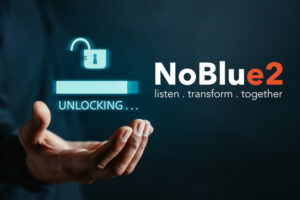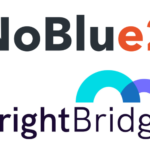Ensuring customer loyalty in a world where competitive offerings are just a few clicks away can be a challenge.
By maintaining customer communications, you will improve customer satisfaction levels, which will help to drive business success.
There are numerous communications tools and methods that can help you store and manage customer data, enabling you to deliver effective communications that will keep your customers happy and keep them coming back.
Types of Communication
Business communications come in various guises and have developed with the advent of digital. We’ve come a long way from when communication could only happen during in-person meetings or via hand-written letters. And it seems an age ago too that we relied on the telephone, fax machine and typewriter.
Now of course, we have social media, SMS and instant messaging, video calls and the all-important email.
Choosing the right communication methods means tailoring your options. You will want to choose those that suit both your own and your customers’ needs. You might select according to ease of use or cost. But ensuring you give your customers a choice of methods is important too.
The Benefits of Good Customer Communication
Good communications improve customer relationships and help streamline your internal business operations.
By keeping your customers informed, you stay top of mind with them. The more you communicate with them, the more they will remember your business. And when they next need your product or service, they will be more likely to turn to you as someone they have recently heard from.
Good communications also establish and maintain trust. This enhanced confidence engenders loyalty. Customers will return to you over and again – and will be more likely to recommend you to their own contacts.
It’s important to be transparent and honest in your communications. This limits any misunderstandings and avoids disputes. Being honourable and authentic can also prevent any negative repercussions down the line.
When you communicate well, you also enhance your customer’s experience. You demonstrate that you know them well by making appropriate offers or by proactively reminding them about their accounts or services.
In turn, this improves sales. With insight into customer behaviour – even at an individual level – you can therefore manage your customer accounts to the best effect and take advantage of sales and marketing opportunities.
Examples of Good Communication
What is considered “good” when it comes to customer communications? If you are a distributor, then good communications include informing your customers about the status of their orders and updates about any delays. Food and drinks suppliers, such as the major supermarkets, will email customers to tell them about substitutions in their orders. This prior warning gives the customer time to decide if the substitution is acceptable or not.
For businesses that provide client services, good communication is characterised by being regular and frequent. Supplying updates about a project’s status ensures that all stakeholders within the client team are kept informed and that any bottlenecks or changes to project timescales can be dealt with as soon as possible, helping to keep the project on track.
Ensuring your customers are heard is vital in communications. The interactions that customers have with your customer service team will strongly influence their opinions about your company and can affect whether they stay with you or not. Ensuring your staff listen to customers about their concerns or complaints requires a two-way communication process. Aside from providing excellent customer service via email, telephone and chat services, it’s also important to proactively provide opportunities for customer feedback. This might include tracking the types and numbers of complaints or regularly surveying customers about their experiences, thoughts and attitudes.
If you send marketing emails, segmenting your database is key to ensuring that customers hear from you about the right products or services. At the most basic level, segmenting according to their demographics or their previous purchases is vital. But the more precisely you can segment your customer data, the better. For instance, your customers are not all at the same stage in the customer journey, so the messages you send to them need to be tailored if you want to match their needs most appropriately. Equally, you want to be certain that you don’t alienate or offend customers that don’t want to hear about certain subjects. An example of good practice here would be the greetings cards, flowers and gifts companies that ask customers in advance if they want to opt out of receiving Mother’s Day or Father’s Day campaigns.
Should You Still Communicate Even When the News is Bad?
There’s no point burying your head in the sand when it comes to bad news. Of course you should still communicate. It manages expectations and can sometimes avert major issues.
If you run a business that relies on IT technology, for example, you need to tell your customers if the servers go down. If you don’t inform them about a problem, customers will find ways of determining what the situation is themselves. Complaints and accusations can quickly flood social media in these cases. This is harder for you to manage and it could be damaging to your business, affecting your reputation and therefore impacting future custom.
Optimal Communications
One of the best ways to manage your communications is via CRM software –customer relationship management systems.
A CRM helps you manage all your clients in one place, with no need for you to have a separate database, separate mailing lists, or to manage different spreadsheets.
With this database of customer contacts, you get a complete view of your customer. Tying in with your finance and accounting system, it allows you to track the lifecycle of each customer and closely and effectively manage your customer relationships.
A CRM is effective at managing all aspects of customer communications, across sales, marketing, customer service and operations.
For marketing communications, you can segment and select which customers to email. This may include sending an automated welcome email to someone who has just signed up or bought from you for the first time. Or you might send promotional offer emails to launch new products and services or to encourage upselling and cross-selling.
When integrated with your ERP system, a CRM allows you to manage the operational communications you have with your customers. This might include issuing order confirmations, sending invoices and statements, tracking service queries or issuing status updates about deliveries.
Finally, sales automation features allow you to manage the sales process, from capturing the initial opportunity to sending quotes and administering sales commissions.
With a CRM, you’re able to track all these communications in one place and all linked to the customer account. This allows multiple people from within your company to easily collaborate and communicate seamlessly and more effectively with your customer, whether they work in sales, marketing, customer service or accounts.
NetSuite CRM provides exceptional communications opportunities as part of its sales force automation, customer service management and marketing automation capabilities. Contact us today for a quote or a demonstration.










